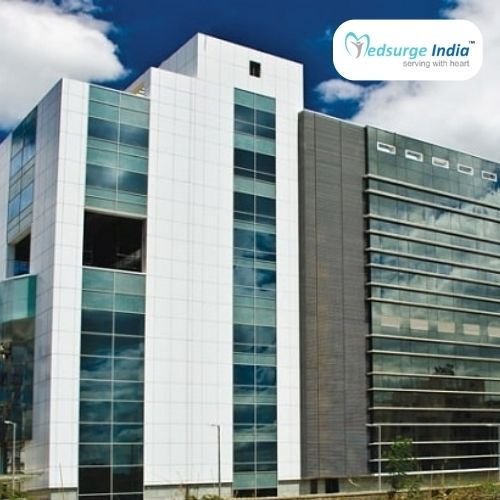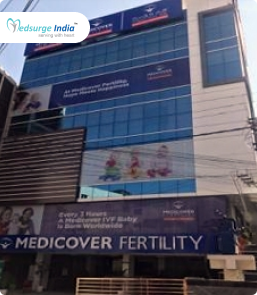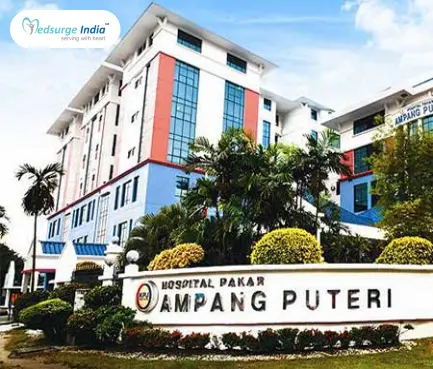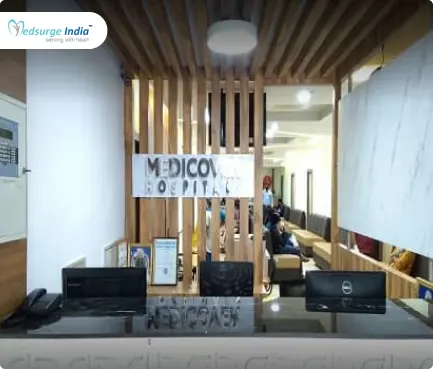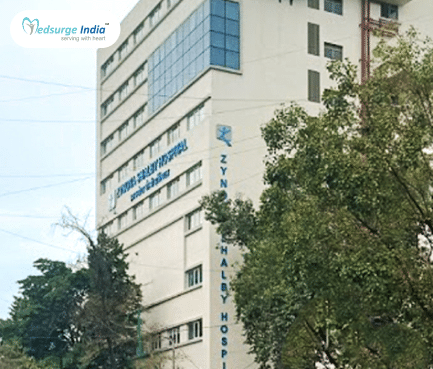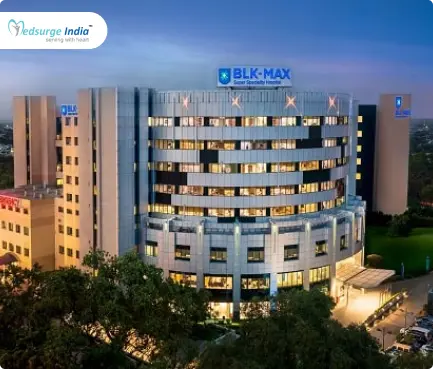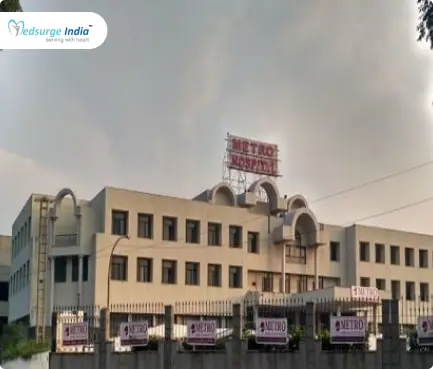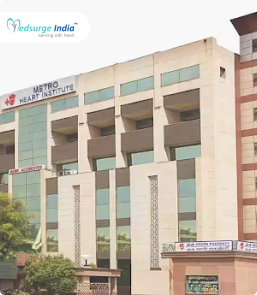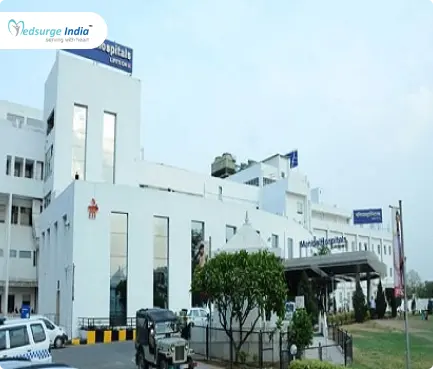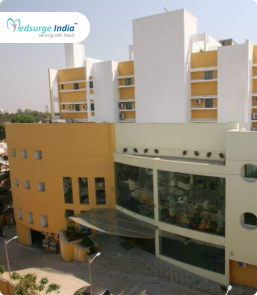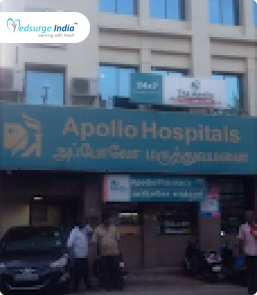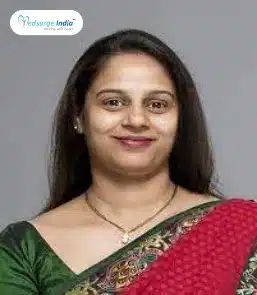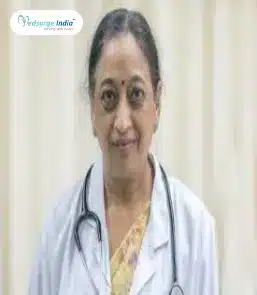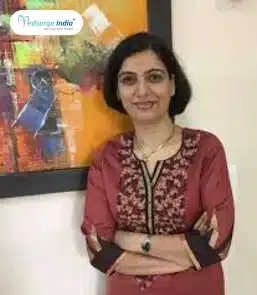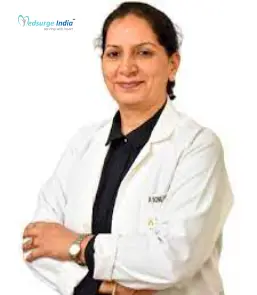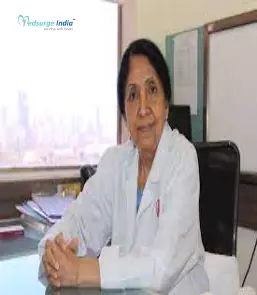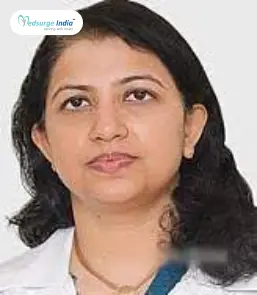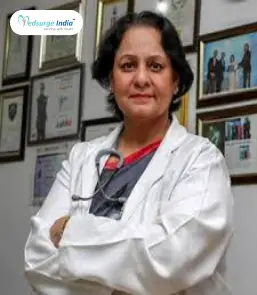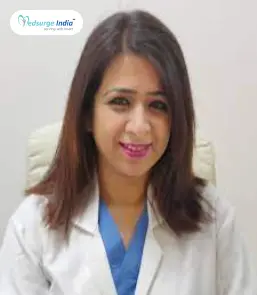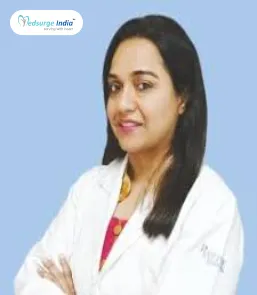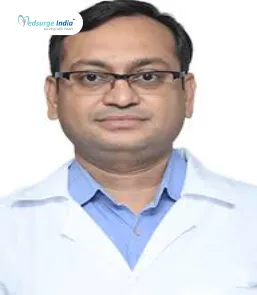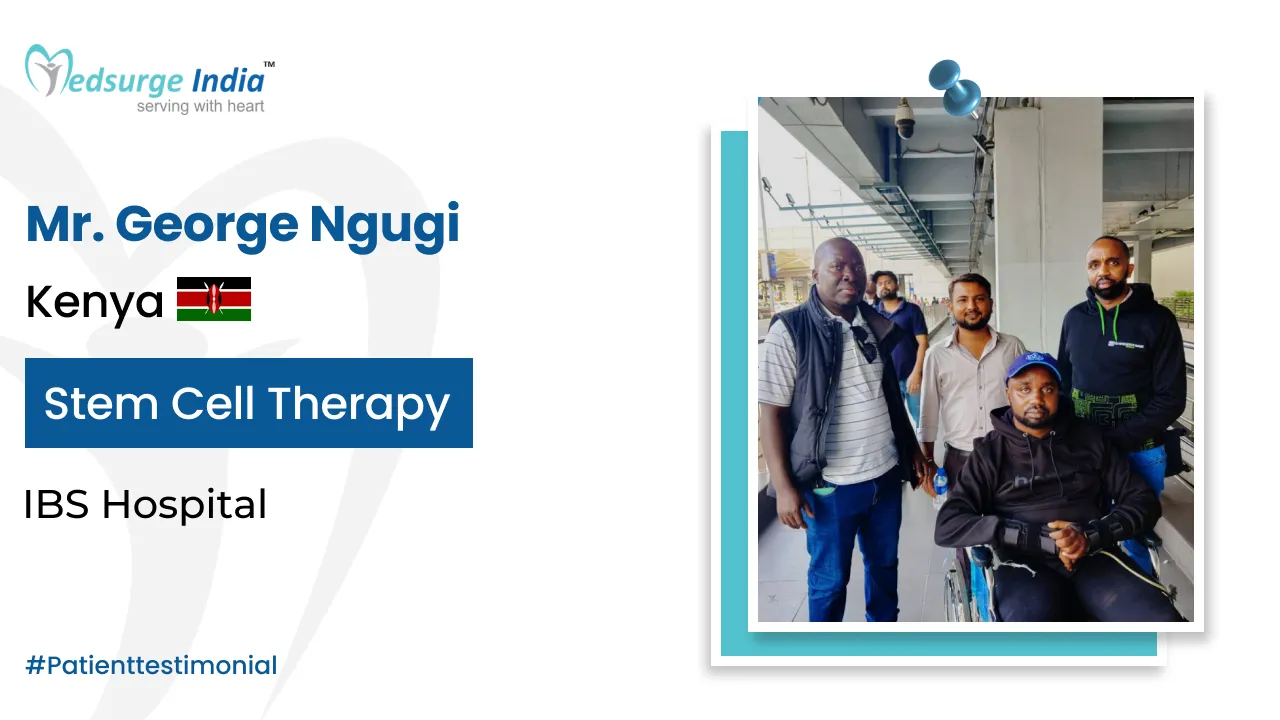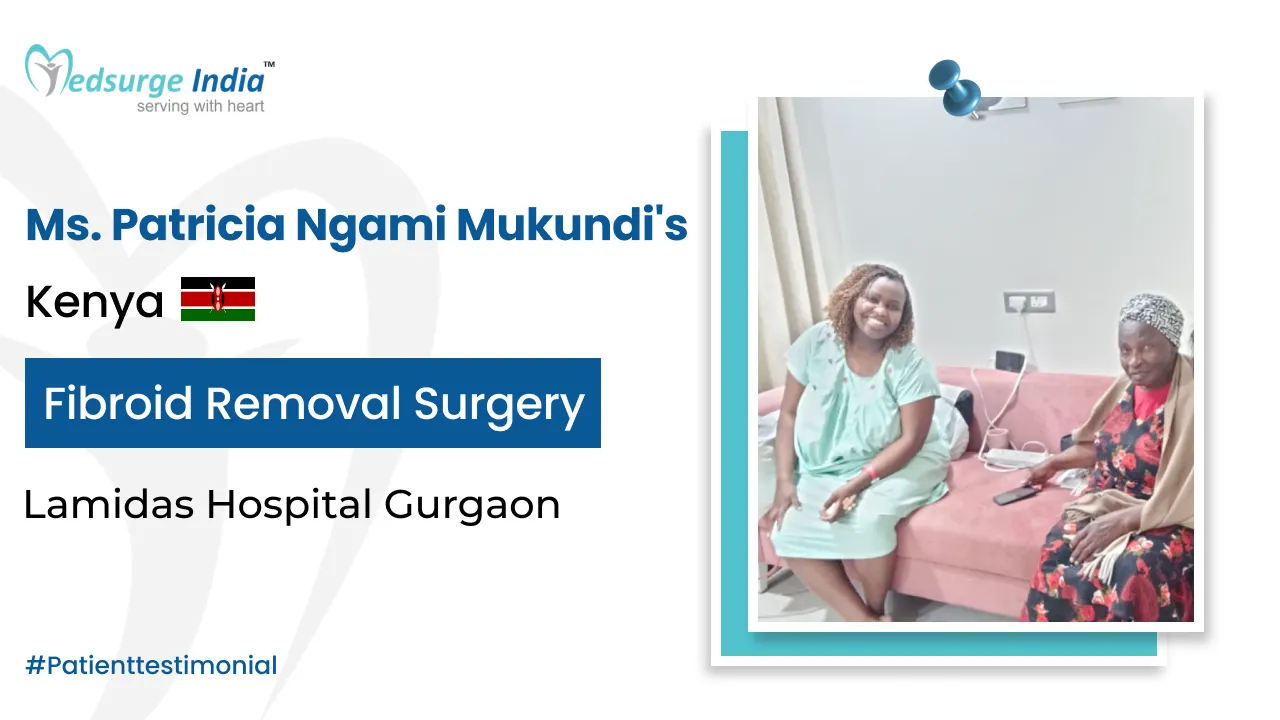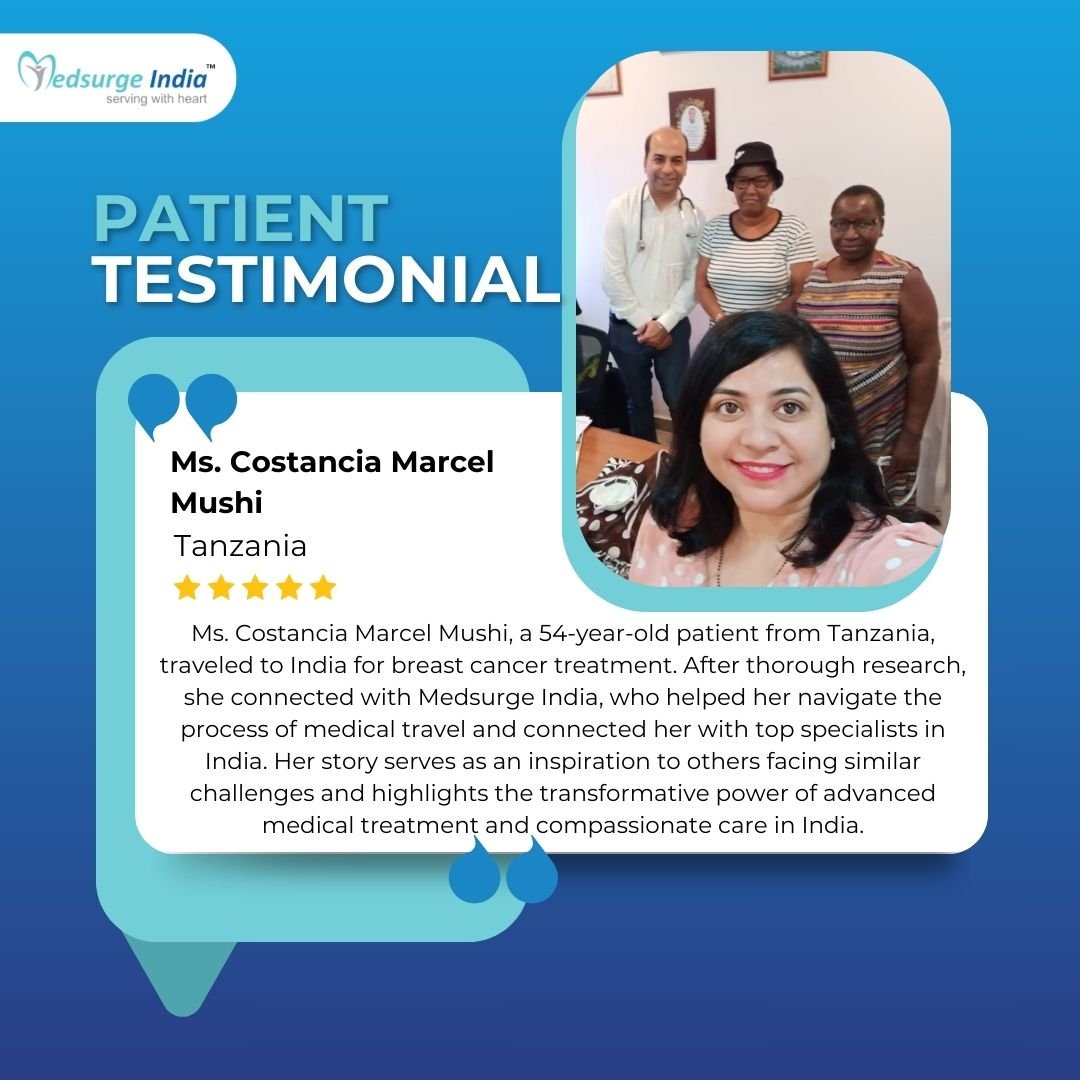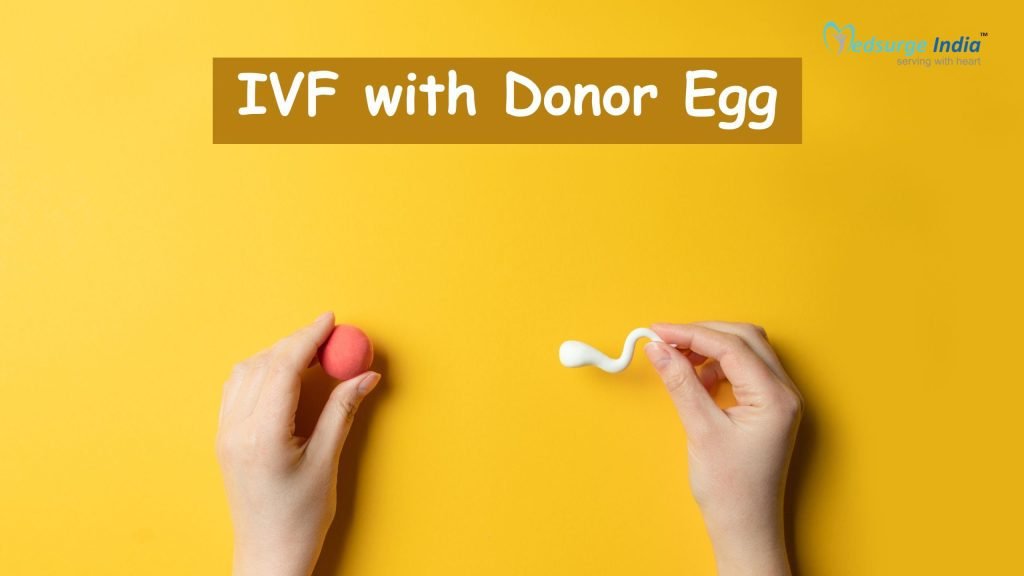
For individuals who cannot use their eggs for various reasons, donor egg IVF in India is a viable fertility treatment. The success rates for this method are quite favorable, often exceeding the typical IVF success rates for couples who do not use a donor, especially when a carefully screened egg donor is chosen.
Although the intended mother will not have a genetic connection to the baby, the intended father will, unless a sperm donor is also used. This makes egg-donor IVF a more attractive choice compared to embryo donor IVF, where neither parent would have a genetic link to the child.
Donor Egg IVF Cost in India
Donor egg IVF cost in India starts from INR 3,63,000 (4300 USD) and can go up to INR 4,89,000 (5800 USD).
Hospitalization is not necessary; however, the wife must remain in Indian hospitals for a duration of 28 days. The husband is permitted to return home seven days after providing a sperm sample.
Candidates for donor egg IVF include those of older age, individuals with diminished ovarian reserve, early ovarian failure, and women facing unexplained infertility or issues related to autoimmune disorders, chemotherapy, or surgical menopause. Additionally, women with genetic mutations are also suitable candidates for this procedure.
Donor Egg IVF Cost in India Vs Other Countries
| Countries | Starting Prices |
| India | 4300 USD |
| The U.S. | 45,000 USD |
| U.K. | 40,000 USD |
| Australia | 35,000 USD |
It is important to note that the expenses and treatment alternatives for donor egg IVF cost in India can vary depending on the patient’s individual preferences and other considerations.
Factors that Can Affect Donor Egg IVF in India
Various reasons can affect donor egg IVF cost in India. This includes the following:
- Medications: The costs of medications required to stimulate the donor’s ovaries and prepare the recipient’s uterus for embryo transfer can represent a substantial portion of the total expenses.
- Donor Compensation: The remuneration provided to egg donors is influenced by several factors, including the donor’s age, prior donation history, and the demand for particular donor characteristics.
- Donor Screening and Testing: The expenses associated with screening and testing prospective egg donors for medical and genetic issues, as well as infectious diseases, contribute to the overall financial burden.
- Laboratory Fees: Charges related to egg retrieval, fertilization, embryo culture, and embryo transfer play a significant role in the overall cost of IVF in India.
- Fertility Clinic Fees: Fees for the clinic encompass medical consultations, monitoring visits, and procedural expenses linked to IVF treatment.
- Additional Services: Services such as anesthesia, counseling, and genetic testing may lead to further costs.
What is Donor Egg IVF?
Egg donation typically entails the extraction of eggs from a woman who has consented to donate her oocytes. These harvested eggs are then fertilized in a laboratory setting using sperm from the male partner, and the resulting embryos are subsequently implanted into the uterus of the recipient, who is the intended mother. In the case of Donor Egg IVF, the intended mother will not have a genetic connection to the child, while the intended father will, as his sperm is used in the process.
While most egg donations are conducted anonymously, some couples prefer to know their egg donor and may take legal steps to formalize the donation agreement. If the donor is acquainted with the parents, they might wish to receive updates or even arrange visits after the child is born. Regardless of whether the donor is a close friend or family member, it is essential to establish an egg donor contract that clearly outlines the terms of any potential future relationship.
Who May Need a Donor Egg IVF in India?
Individuals who might find donor egg IVF advantageous include:
- Reduced Ovarian Reserve: Some women may experience a decline in egg quantity or quality due to age or other contributing factors.
- Premature Ovarian Insufficiency: Conditions such as early menopause or ovarian dysfunction can result in the inability to produce healthy eggs.
- Single Men: Those wishing to become parents through surrogacy may need donor eggs to combine with their sperm.
- Multiple IVF Failures: Individuals who have faced repeated unsuccessful IVF cycles using their own eggs may consider donor eggs as an alternative.
- Genetic Concerns: Couples who are at risk of transmitting genetic disorders may choose donor eggs to prevent passing on these conditions.
- Autoimmune Conditions: Autoimmune disorders that impact ovarian function may require the use of donor eggs in the IVF process.
What is the Success Rate of Donor Egg IVF in India?
The success rate of donor egg IVF in India is approximately 60% for each individual attempt, with the likelihood increasing to as high as 90% after three attempts. The success rate of Donor Eggs IVF in India is influenced by various factors, such as the:
- number of embryos transferred,
- the developmental stage of the embryos at transfer (for instance,
- cleavage stage versus blastocyst stage),
- the implementation of preimplantation genetic testing (PGT).
Some fertility clinics may choose to transfer multiple embryos to enhance the likelihood of achieving pregnancy, while others may prefer a single embryo transfer to minimize the risk of multiple gestations.
Moreover, the timing of embryo transfer plays a crucial role in determining success rates, with blastocyst transfers typically yielding better outcomes than cleavage stage transfers. The application of PGT to identify genetic abnormalities in embryos can further increase the probability of a successful pregnancy by allowing for the selection of genetically healthy embryos for transfer.
Donor Egg Profile and its Source
Egg donors in India have the opportunity to donate their eggs anonymously to couples or male partners, as permitted by Indian law. Typically, the physician overseeing your treatment will present the option of using an egg donor. It is important to note that the same physician usually provides the list of potential donors. When searching for an egg donor, several issues may arise:
Legal Rights of Egg Donors and Recipients
Infertile couples who choose to work with egg donors may encounter various legal challenges. It is essential that the egg donor agreement clearly states that the donor relinquishes all parental rights permanently, ensuring that any children conceived from the donated eggs are recognized as the legitimate offspring of the intended parents.
Additional Considerations Regarding Egg Donation
Couples utilizing donated eggs are generally responsible for all associated costs. It is advisable to consult with your insurance provider to determine if these procedures are covered and to obtain a detailed explanation of your benefits. Typically, you will be liable for both your own medical expenses and those of the donor, which may include additional costs arising from complications during the egg retrieval process. Potential complications can include bleeding, infection, and injury to the bladder or abdominal organs.
How is the Donor Egg IVF Procedure Done?
Egg donors are generally obtained through established fertility clinics or agencies. The process of procurement includes extensive screening to verify the donor’s physical and mental well-being, along with their genetic background, ensuring they meet rigorous standards. Screening methods may encompass medical evaluations, psychological tests, and genetic assessments. Genetic testing is vital for detecting possible genetic disorders, thereby safeguarding the health of future children. The selection of donors is based on these established criteria to enhance the likelihood of a successful outcome for recipients utilizing IVF with donor eggs.
Matching of Egg Donor
Choosing appropriate egg donors involves evaluating factors such as age, health status, and medical history. Matching physical attributes is essential to ensure that the child bears a resemblance to the intended parent(s), which may include characteristics like hair color and height. Additionally, cultural and ethical factors influence donor matching, honoring the preferences and values of the intended parents while addressing concerns related to genetic diversity and familial likeness.
Donor Egg Procedure
The IVF donor egg process consists of several stages: pre-treatment screening and preparation, egg retrieval, fertilization, and embryo transfer. Initially, both the donor and recipient undergo thorough screening assessments to confirm their suitability.
The donor then receives ovarian stimulation to generate multiple eggs, which are retrieved under sedation.
The procedure initiates with the stimulation of the donor through Gonadotropin injections throughout approximately 10 to 12 days, after which the egg retrieval takes place.
Prior to this, comprehensive screening procedures, including blood tests and ultrasounds, are conducted to confirm that the recipient’s medical status is within acceptable limits. Should any issues arise, such as the detection of fibroids, these are promptly addressed before advancing to the IVF process.
To prepare the recipient for the donation, either estrogen tablets or Lupron are prescribed. This preparatory phase can last from 2 to 6 weeks, depending on the chosen protocol.
On the day of egg retrieval, the sperm sample from the husband is collected. The eggs and sperm are then fertilized in a controlled laboratory setting, and a few days later, the resulting embryos are carefully transferred into the recipient’s uterus.
Throughout the entire procedure, our specialists diligently monitor health indicators and other relevant factors to enhance the chances of successful implantation and confirmation.
Estimated Time For the Procedure
The treatment typically commences one month before your anticipated IVF cycle and is synchronized with the donor’s cycle, as well as the preparation of your endometrium. This endometrial preparation can last anywhere from 2 to 6 weeks. If you are completing the entire procedure at our clinic ahead of time, your stay can be shortened from one month to approximately 7 to 10 days, which aligns with the timeframe for the embryo transfer.
Some Useful Tips for a Healthy Pregnancy
To ensure a healthy pregnancy through donor eggs, we will share some uself ti you can do to avoid any complications.
- It is advisable to reduce your consumption of caffeine and alcohol, as these substances can place additional stress on the body, potentially hindering the implantation and settling of the egg during the early stages of pregnancy.
- Refrain from smoking and avoid environments where you may encounter second-hand smoke both prior to and following conception through the donor egg method.
- If you have any medical conditions, such as depression, hypertension, or obesity, please feel free to discuss these with your specialists during your initial consultations.
This will enable them to provide tailored solutions and the necessary support and reassurance throughout the process. A team will be there to perform a series of tests in their advanced laboratories to confirm that you and your body are adequately prepared for the procedure.
Should you have a history of miscarriages or unsuccessful IVF attempts, consult with your specialists as they will suggest appropriate supplements, care routines, and medications to help prepare your body for the upcoming process.
Helpful – Who is a Good Candidate For IVF
Get Free Cost Estimation
The Most Important Frequently Asked Questions
Q: How Successful Is IVF with Donated Eggs?
A: On average, donor egg IVF success rates are around 52%, which is quite significant.This demonstrates the thorough screening of all egg donors, as well as the advanced approach to reproductive treatment accomplished through IVF.
Q: What Are the Disadvantages of Donor Eggs in IVF?
A: The primary disadvantages of employing donor eggs are: the realization that a baby conceived through egg donation will not be biologically connected to the mother; having to prepare to tell your child that they were conceived using a donor egg; and medical concerns such as genetic abnormalities.
Q: How Are Donor Eggs Selected for IVF?
A: Criteria to select the donor –
Egg donors undergo screening, which includes a complete medical history, physical exam, and egg reserve testing (Transvaginal scan to evaluate antral follicle count and AMH blood test) to determine if she is likely to be a good donation candidate.
Q: Which Is Better: Donor Egg or Own Egg?
A: The donor egg procedure is most appropriate for women over the age of 40. At this age, your own egg production is limited, thus your chances of conceiving are minimal. When the women experience poor egg production because of any reason. If possibilities of conveying sickness to the child from mother is substantial, one should choose the donor egg method.
Q: Can You Breastfeed Using a Donor Egg?
A: If you have a baby from donor eggs, and you carry the pregnancy, you can breastfeed exactly as you would otherwise.
Top Hospitals for Donor Egg IVF In India
Top Doctors for IVF and Infertility
Dr. Puneet Rana Arora
Consultant
Experience: 18 years of experience
UPHI-The Wellness & Surgical Centre Gurgaon
New Delhi, India
Dr. Deepthi Bawa
Consultant
Experience: 7 years of experience
Aster CMI Hospital (Hebbel) Bangalore
Bangalore, India
Dr. Richika Sahay Shukla
Senior Consultant
Experience: 21 years of experience
Miracle Mediclinic Hospital, Gurgaon
NewDelhi, India
Dr. Renu Misra
Senior Resident
Experience: 22 years of experience
Miracle Mediclinic Hospital, Gurgaon
Gurgaon, India
Dr. Sandeep Talwar
Consultant , MBBS, DNB, Fellowship
Experience: 22 years of experience
BLK Super Speciality Hospital, New Delhi
New Delhi, India
Dr. Meenu Handa
Senior Consultant
Experience: 15 years of experience
Fortis Memorial Research Institute, Gurgaon
Gurgaon , India
Dr. Parul Gupta Khanna
Consultant
Experience: 9 years of experience
Nova IVF Fertility, Gurgaon
Gurgaon, India
Dr. Pramod Kumar Sharma
Chairman
Experience: 25 years of experience
Marengo Asia Hospitals Formerly W Pratiksha Hospital, Gurgaon
Gurgaon, India
Dr. Sonu Balhara Ahlawat
Senior Consultant
Experience: 17 years of experience
Gurgaon
Gurgaon, India
Dr. Pallavi Priyadarshini
Consultant
Experience: 17 years of experience
Kokilaben Dhirubhai Ambani Hospital Mumbai
Mumbai, India
Dr. Soma Singh
Consultant , Fellowship, DNB, MS, MBBS
Experience: 12 years of experience
BLK Super Speciality Hospital, New Delhi
New Delhi, India
Dr. Sulbha Arora
Consultant
Experience: 17 years of experience
NOVA IVI Fertility, Mumbai
Mumbai, India
Dr. Ujjwal Mahajan
Consultant
Experience: 14 years of experience
Reliance Hospital, Navi Mumbai
Mumbai, India

